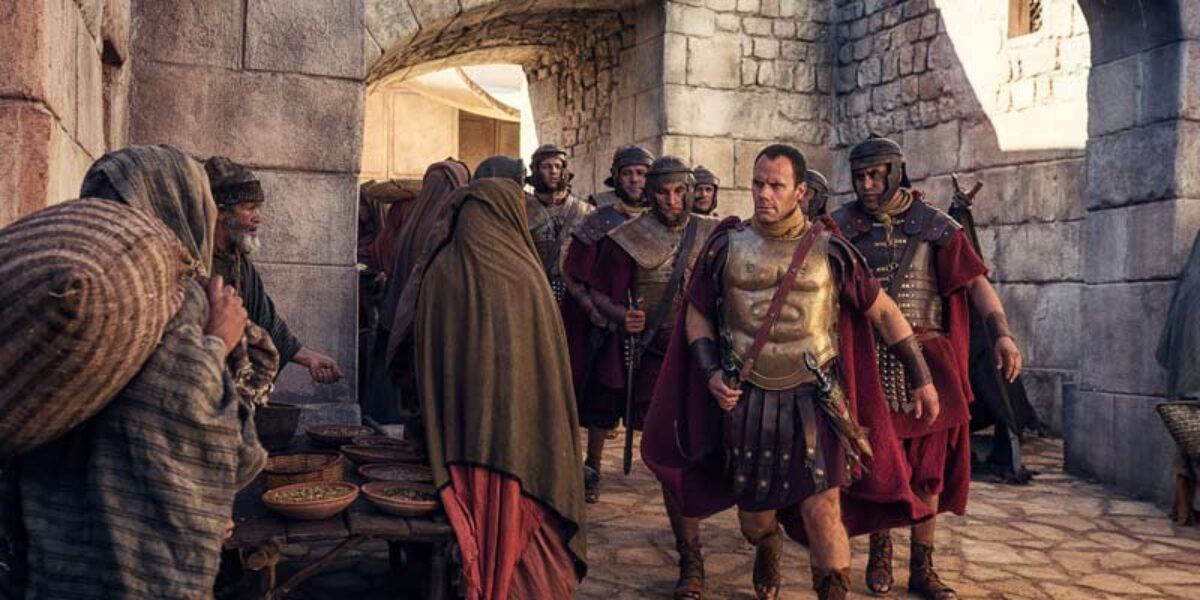Episode 4
Overview: Amid great unrest in Jerusalem, Peter and John are arrested and put on trial for healing a lame man in Jesus’ name. Ananias and Sapphira face God’s judgment for lying about their contribution to the church.
Bible Connections: Acts 4-5.
Other Sources: There is no particular record of witness-tampering in the healing of the lame man, but in a very similar story the gospels give us a sense of the strong-arm tactics of the religious authorities in Jerusalem after Jesus healed a blind beggar (John 9). Also, the authorities had sought false witnesses to testify against Jesus (Matthew 26:59-61).
Dramatic Imagination: While ancient historians report that Pilate was abusive toward the Jews and that certain revolutionary groups opposed him, the specific details of this assassination attempt are fabricated.
Entry
- Have you ever been part of a new movement—a business, a church, a team, an organization, or something else? How did that feel? How would you compare it to the excitement seen among the Jesus-followers in this episode?
- We met several new characters in this episode. Which of them would you connect the most with, emotionally?
Dig Deeper
- How do you think Peter felt about getting thrown in prison? Wasn’t this the very thing he was trying to avoid when he denied knowing Jesus? What was different now?
- What do you think about what Ananias and Sapphira did? Was the penalty too harsh for the crime? Why do you think God did that? What effect did it have on the young church?
- What would make someone want to join a movement like that when the authorities were arresting its leaders?
Takeaway
- The Bible talks about the “great fear” that gripped the church after the death of Ananias and Sapphira. Is fear something we need more of in the church today, or less?
- This slice of the story has several good and bad examples for us. The lame man exulted in his healing and (ultimately) shared his story, and so should we. Ananias and Sapphira pretended to be more committed than they really were, and that’s a danger we should avoid. Barnabas freely shared his resources, even selling some property, and Stephen was eager to use his talents for the Lord. Which of these is the lesson you need most? What could you do this week to start following (or avoiding) that example?
- In one of the added elements of this story, the revolutionary Boaz tries to recruit Christians to his cause. Is that still a danger today? Do we get tempted to join social and political causes when we should be focusing on the mission Jesus gave us? What should we do about that?





